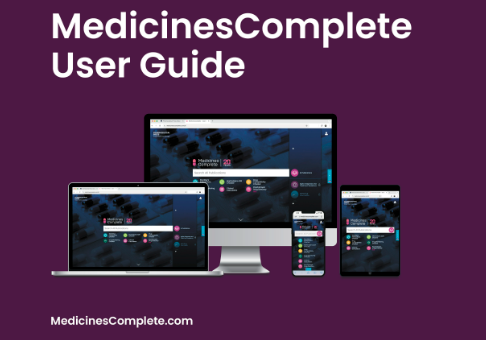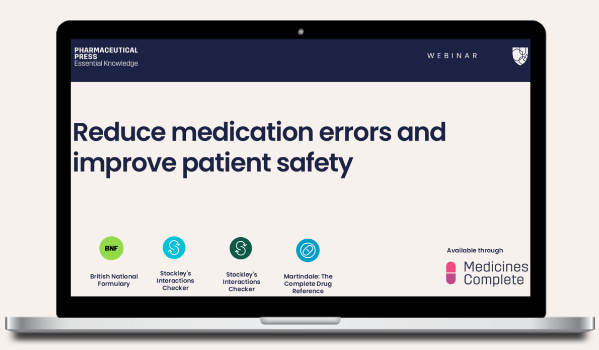BNF 70 years – a day in the life

When British National Formulary (BNF) turned 70 years in 2019, we asked Jean MacKershan to tell us about her typical working day and her contribution to the editorial process behind BNF publications. Discover what it takes to be a member of BNF editorial team as she takes us through a regular day in the office.
Meet Jean MacKershan, Content Manager for BNF Drugs Team.
After studying BSc Pharmacy at Strathclyde University, Jean worked for her pre-registration year in community pharmacy, and then registered as a UK pharmacist in 2000. She has 7 years of community and hospital pharmacy experience under her belt, and has even worked as a pharmacist in Australia, in children’s hospitals in Sydney and Brisbane.
Ready for a new challenge, Jean joined Pharmaceutical Press in June 2007 and has worked across a number of the editorial teams including Martindale: The Complete Drug Reference. As well as developing her editorial skills, she has also completed a postgraduate diploma in clinical pharmacy in this time.
Over the past 16 years at Pharmaceutical Press, Jean has seen many developments to the unique and rigorous editorial process of BNF, which is one of the reasons BNF today is considered the UK’s most authoritative source for trusted medicines information.
MAIN CHALLENGES OF THE ROLE
8.30 – 9.00 Telephone meeting
Due to flexible working arrangements, I work from home every other Monday. My day always starts with a short and snappy meeting. We start by warming ourselves up with a fun quiz and then we discuss the agenda and work for the day. This gives the team the opportunity to share issues and improvements, update each other on project progress and co-ordinate efforts.
9.00 – 11.00 Approving work
A large part of my role is supporting clinical writers in planning and researching a piece of work. I spend the first half of my morning giving feedback and guidance on recent content written by the team. In this time I write, review, or approve work allocated to me.
Deadline pressure
BNF is updated every month online. In the week running up to the monthly update deadline, I work to ensure that updated or new content is approved and released in time. This involves liaising with other teams to ensure that all related work is published together. For example, a new drug monograph written by our team will also need input from the interactions team, the side effects team, and the treatment summaries team!
11.00 – 12.00 BNF correspondence and insights
I commit time to help manage BNF correspondence and reader feedback. BNF gets an incredible amount and it is great to know what readers think of our content. Often, we receive helpful insights and comments on what readers value, and this can prompt further work to improve our content. One of the challenges we have as clinical writers is taking complicated information and making it easier to digest, understand and be concise. There is always the question, how do we make it better?
Sources processing
I also dedicate time to focus on sources processing. This means I have to identify updated or new product information from the EMA (European Medicines Agency). It is important that I record any updates that may impact on our content. I then assign a priority to those that require work.
[Other writers on the team look at different sources such as NICE, UK SPCs and more]
12.00 – 13.00 Meeting with managers, team leaders and seniors
Monday is always a busy day for us as most of the team are in the office. After making myself a quick cup of tea, I sit down with the managers, team leaders and senior writers. Due to the tight deadlines for BNF, this meeting is vital for us to discuss the allocation of work, priorities, and resolve any workflow issues.
13.00 – 14.00 Lunchtime
Before I know it, it’s lunchtime! I tend to grab a salad from our office restaurant and take a walk around St Katherine’s Docks to get some fresh air.
14.00 – 16.00 Training new content writers
One of the favourite parts of my job is running training sessions for clinical writers with less experience. They take place every two weeks and sessions can range from training the drug monograph team on literature searching, how to update indications or doses, writing style and editorial procedures. We also have a clinical writer training scheme which aims to progress writers to a senior level through training and skill development. My role is to provide support and feedback to writers on the programme.
16.00 – 17.15 Final meeting
The final meeting of the day is with the entire drugs team. We alternate between planning meetings (where we allocate work) and progress meetings (where we discuss our progress).
MY FIRST MEMORY WORKING IN THE TEAM
My first experience of working on BNF involved preparing content for the typesetting of a print edition. This involved co-ordinating a team of editorial staff to carry out all the necessary checks and ensure content is displaying correctly for print. I always remember the time our checks revealed that a drug monograph was missing from the print export: this was a drug monograph that had recently been added to BNF content in the content management system (CMS). We quickly identified why it was missing and fixed the issue in the CMS.
The content then had to be re-exported before we continued with the checks. Unexpected issues like this can cause significant pressure on deadlines, and on this occasion the team pulled together and it went off to the printers in time!
I made a note to myself that when preparing for the next print edition, we should carry out a check to verify that new content such as drug monographs are present earlier in the process, meaning we could identify any issues promptly.
MAIN CHALLENGES OF THE ROLE
- Taking complicated information and making it easier for health professionals to digest and understand.
- Meeting tight editorial deadlines (online and print deadlines) and ensuring quality of work is concise, accurate and evidence checked.
- The editorial rigor that goes behind the production of BNF content means I must take great responsibility in training new clinical writers.
- Remaining up to date with new or updated clinical information so I can support clinical writers to write relevant new content that is helpful to our readers.












